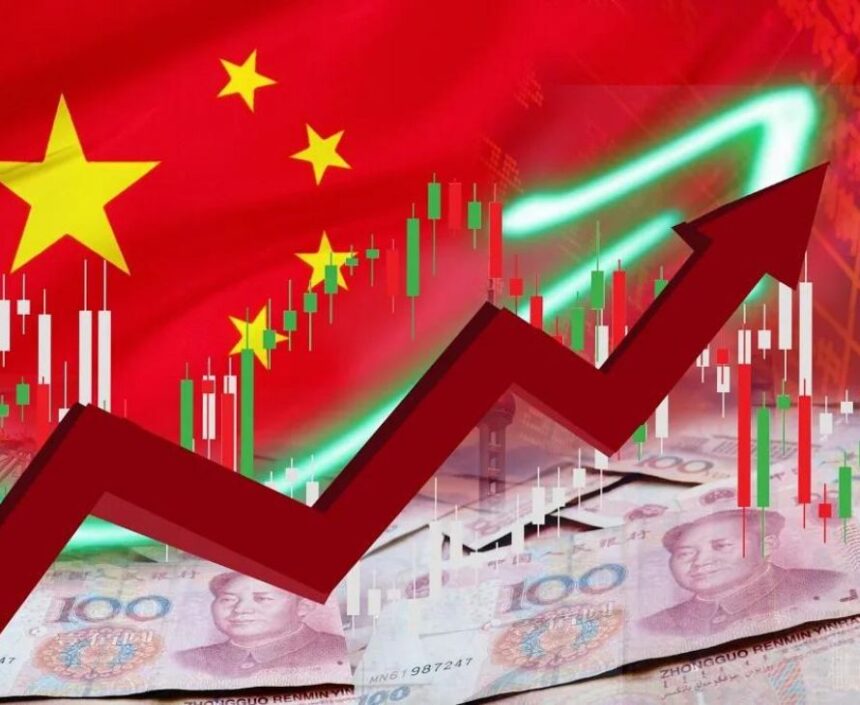China’s rapid economic growth has been one of the most remarkable success stories of the 21st century. However, beneath the surface of this booming economy lies a significant challenge: the growing divide between urban and rural areas. This gap, characterized by disparities in income, education, healthcare, and access to public services, is not only a social issue but also a threat to the country’s long-term economic sustainability.
Income Disparity: A Growing Concern
One of the most glaring aspects of this divide is the income gap between urban and rural areas. While urban residents enjoy higher wages and better employment opportunities, rural incomes lag significantly behind. In many cases, rural incomes are less than half of those earned by their urban counterparts. This disparity is reflected in China’s Gini coefficient, a measure of income inequality, which has been steadily rising.
The consequences of this income gap are far-reaching. Rural residents, with their limited financial resources, struggle to access quality education and healthcare, which in turn hampers their ability to break the cycle of poverty. The lack of economic opportunities in rural areas also drives migration to cities, further exacerbating the divide.
Access to Essential Services: A Tale of Two Worlds
The urban-rural divide is not just about money – it’s about access to essential services that many urban residents take for granted. In rural areas, healthcare facilities are often underfunded and understaffed, leading to poorer health outcomes. Similarly, educational opportunities are limited, with rural schools lacking the resources and qualified teachers found in urban centers.
This lack of access to quality services perpetuates inequality. Rural children, for example, are less likely to receive the education they need to compete in an increasingly competitive job market. Healthcare disparities mean that rural residents face higher mortality rates and lower life expectancies compared to their urban peers.
Environmental Impact: A Hidden Consequence
The urban-rural divide also has environmental implications. Rural industries, often operating without strict regulations, contribute to severe environmental degradation. Pollution from these industries affects both rural and urban populations, further illustrating the interconnectedness of China’s economic and environmental challenges.
The environmental degradation in rural areas also exacerbates the economic divide. Depleted natural resources and polluted land reduce agricultural productivity, making it even harder for rural residents to improve their economic standing.
Causes of the Divide: A Historical Perspective
The roots of China’s urban-rural divide can be traced back to its development strategy. For decades, the government prioritised industrialisation and urban development, often at the expense of rural areas. This focus on urban growth created a systemic bias against agricultural and rural development, leaving rural regions lagging behind.
Policies like the Household Registration (Hukou) system have institutionalised this divide. The Hukou system restricts rural residents’ mobility and access to urban benefits, such as better jobs, education, and healthcare. As a result, many rural residents are trapped in a cycle of poverty, unable to access the opportunities available in cities.
Bridging the Gap: Is It Possible?
While the urban-rural divide in China is a significant challenge, it is not insurmountable. There are several strategies that could help narrow the gap and promote more equitable growth:
- Policy Reforms: Removing discriminatory policies, such as the Hukou system, and enhancing the provision of public goods in rural areas could promote greater equality of opportunity.
- Investment in Rural Development: Targeted investments in rural infrastructure, education, and healthcare can improve living standards and economic opportunities for rural residents. By providing better schools, hospitals, and roads, the government can help rural areas catch up with their urban counterparts.
- Encouraging Urban-Rural Integration: Policies that promote the integration of urban and rural economies could also help bridge the divide. For example, supporting rural industries and improving access to urban markets can create new economic opportunities for rural residents.
A Path to Sustainable Growth
China’s urban-rural divide is not just a social issue—it’s a threat to the country’s long-term economic growth. By addressing the root causes of this divide and implementing targeted reforms, China can create a more equitable society and ensure sustainable growth for years to come.
The road ahead is challenging, but with the right policies and investments, China has the potential to bridge the gap between its urban and rural areas, fostering a more inclusive and prosperous future for all its citizens.
ALSO READ: China’s green transformation in road infrastructure: Leading the way to a sustainable future













